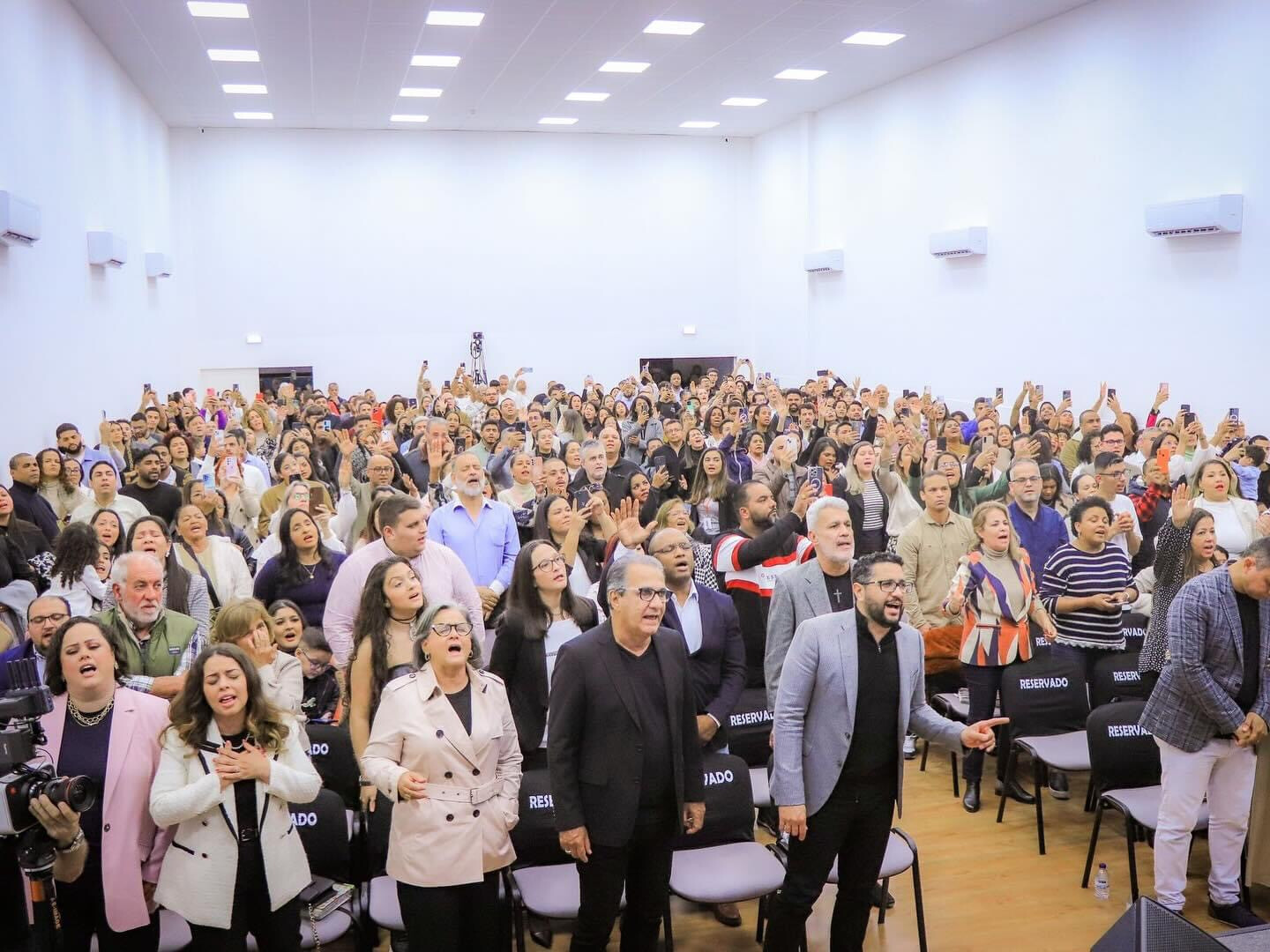The same spaceNuno Pereira noted that evangelicals used communication channels to defend the ADN vote, a fact that is easy to prove on social media. YouTube was one of the main platforms where “spreading the word of God” was mixed with the call to vote. TV Lusitana, run by Paulo Nunes himself, was widely used to convey the party's message, with a direct request to vote for the ADN. The campaign was called “Come with Me” and asked to “borrow” from Brazil the term “Evangelical Bench”, which brings together priests and elected parliamentarians. Some of them have been actively involved in the ADN campaign, such as Marco Feliciano, fourth-term federal representative and early ally of former President Bolsonaro.
In his autobiography, the evangelist, founder of the Revival Cathedral of God ministry, said that “homosexuals are not human beings.” Because of this statement, he is facing a case for the crime of discrimination. In a video sent in support of the ADN, the lawmaker, who calls himself “Jair Bolsonaro's official spokesman,” calls for “a vote of Catholic Christians and Evangelicals.” In return, the party announced its support for the demonstration organized by Silas Malavia in favor of Bolsonaro in São Paulo.
Social networking is one of the holy books of evangelicals, who, literally, do not put down their cell phones during services. DN witnessed during the Malafaia celebrations that photos and videos were posted on social media in real time by the faithful. Churches have professional teams and modern equipment such as video cameras, cell phones, and microphones. Everything is broadcast live and published in different formats, with design and translation work.
“There is a lot of money, the use of the latest technology, and professional marketing departments to devise strategies to spread the message,” comments researcher Donizetti Rodriguez. For example, ADVEC, if all profiles are taken together, has at least half a million followers on Instagram, while leader Malafaia has more than four million.
Added to these numbers are the profiles of pastors, who are encouraged to use social media to spread their political message. Whether on the Internet or on pulpits, in addition to the religious message, partisan political words are preached. “Leaders express their support for a particular party and/or candidate, who may or may not be a member of their group, and even directly ask for a vote,” Rodriguez says.
In the profiles of some priests based in Portugal, there is explicit support for the Chiga party and other leaders of the global far right, such as the Argentine Javier Miley, the American Donald Trump and the entire Bolsonaro clan, from his children to his family. Michel Bolsonaro's wife (especially by pastors' wives).
He supported former Brazilian President André Ventura and vice versa: “It's right-wing, conservative, good people. [André Ventura] “He is on the side of good,” Bolsonaro declared in a video. The leaders also share the fascist-inspired slogan (used by Mussolini in Italy) and later adopted by the Portuguese dictator Salazar: “God, Country, and Family.” In Portugal, Ventura added the word “work”; In Brazil, the word “liberty” was added.
Transatlantic and international relations of the far right, indeed
Revealed by DNIt is also part of the religious agenda. In January of this year, federal representative Eduardo Bolsonaro, son of the former Brazilian president, participated in a symposium with Gabriel Metha Ribeiro and Diogo Pacheco de Amorim, both representatives from Shiga, in addition to other representatives of the conservative movement. Location chosen to host the event? “Sarah” is an evangelical church of Brazilian origin, with its European headquarters in Amadora.
The church's senior pastor mediated the conversation and invited participants to vote in the elections, in apparent support of Chiga. “There are many Brazilians who can vote here in Portugal. This battle is not only for the Portuguese, it is a battle of evil against good. We have to win in the ideological field, in the cultural field and in politics in particular.”
Donizetti Rodriguez calls this practice “staff voting,” in reference to the biblical character Moses: “When the pastor asks to vote for this specific candidate, if there are 100 people in the room who are voters, we can say that almost 100% will follow the pastor’s directions.

“Hardcore alcohol maven. Hipster-friendly analyst. Introvert. Devoted social media advocate.”

